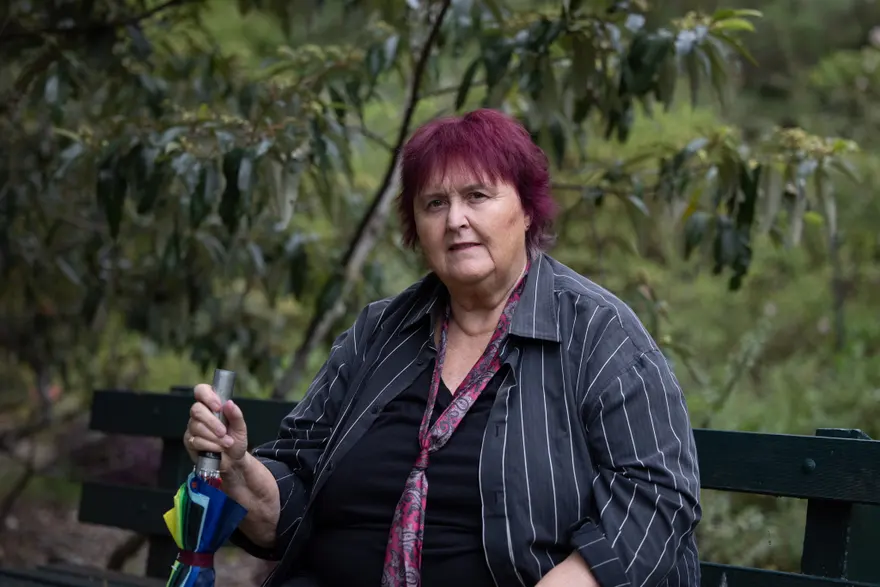Lee Clayton, a 71-year-old resident of Raymond Terrace, New South Wales, recently inspired a semi-fictional storyline in a new play titled CAMP, written by Elias Jamieson Brown. Clayton grew up in Wahroonga, on Sydney’s north shore, and was a shy and innocent teenager who had never heard of lesbians until she found herself attracted to her English teacher. Clayton’s same-sex attraction contributed to her having a nervous breakdown when she was just 19, then becoming distressed again at 21. It was during her training to become a nurse that she was referred to a private hospital in Sydney for treatment, where she was subjected to deep sleep therapy, electro-convulsive therapy, and was nearly given a cingulo-tractotomy, a “psychosurgery” that was used to treat chronic depressive illness, but which was also offered as a “treatment for sexual immaturity” to Bailey’s homosexual patients.
CAMP, or the Campaign Against Moral Persecution, was a queer rights group that rallied against so-called “cures” for homosexuality and fought to decriminalize homosexual acts, then illegal between men. Clayton joined CAMP after her traumatic time in the hospital, where she finally found support for who she was. Robyn Kennedy, an associate producer on the play and co-author of the 2022 book CAMP, points out that when Clayton was hospitalized, homosexuality was still considered a mental disorder. Bailey killed himself in 1985. He appears as a character in Jamieson Brown’s play, which includes the moment queer activists tipped a bucket of blood and sheep’s brains into the foyer of his Sydney practice.
Kennedy rejected her own education by the Catholic Sisters of Charity at school that “particular friendships” were “unhealthy.” At CAMP, which Kennedy joined in 1975, eventually becoming the New South Wales secretary, she found “like-minded people whom I loved and who loved me.” Clayton, a mother of one and grandmother of two, has had good romantic relationships in her life and knows that holding on to anger about what happened to her would only lead to bitterness. “I’m very grateful for all the good things in my life and also having gone through this experience,” she says. “It’s helped me to be more open, compassionate and understanding of people.” CAMP premieres during Sydney WorldPride.

